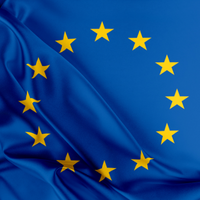
What is a Contact Group?
On September 7, 2022, the Committee of Ministers of the Council of Europe decided to establish The Council of Europe Contact Group on Relations with Belarus. The Council of Europe[1] suspended cooperation with the official authorities of the country in March 2022 due to complicity in Russia's military aggression against Ukraine.
The first meeting of the group took place on November 7th.
On the part of the Council of Europe, the Contact Group includes representatives of its key structures, including PACE and the Office of the Commissioner for Human Rights. From the Belarusian side, the group included representatives of various sectors of civil society, including human rights activists, as well as representatives of political structures: the Office of Sviatlana Tikhanouskaya, the Joint Transitional Cabinet, and the Coordinating Council.
Human rights, media, and youth will be the top priorities for the Group's work. The Contact Group plans to organize the most open participatory process for those who share the values of human rights and democracy and are interested in cooperation with the Council of Europe.
What is the Contact Group for?
The creation of a Contact Group will allow the Belarusian civil society to continue and develop interaction with the Council of Europe in the interests and benefit of the Belarusians, despite the fact that cooperation with the official authorities has been suspended. One of the key opportunities for civil society that the creation of the group opens up is the development of human potential and the development of reforms for the transformation and inclusion of the Belarusian society in the European value system (including training for new institutions).
Such approach will help to make the most of the European experience for the preparation of modern governance mechanisms and institutions of the rule of law, including avoiding mistakes and failures along the way. The war unleashed by Russia in Ukraine makes the need to solve these problems even more urgent.
For the Council of Europe, this form of cooperation is entirely new. Like other international intergovernmental organizations, the Council of Europe was created by several states. Each is represented in the Council of Europe by their government. However, it is important to note that the primary value of the Council of Europe is the involvement of civil society in all processes.
What do human rights organizations expect from the work of the “Contact Group”?
Belarusian human rights activists promote interaction with the Council of Europe within the framework of the Contact Group in the following areas:
1) Joint action plan for Belarus. Establishment by the Council of Europe, in close partnership with human rights defenders and civil society organizations, of a country action plan to achieve common goals.
An important part of such a partnership is the confirmation of the de facto legitimacy and subjectivity of Belarusian NGOs, liquidated as a result of repression, but continuing their activity for democracy and human rights.
2) Informing and including Belarus in the European context. Ensuring that the structures of the Council of Europe are informed about the situation with human rights in Belarus (following the example of the UN special procedures), including informal channels – for a better understanding of the events taking place in Belarus by the Council of Europe and the participating countries, involving Belarusian human rights defenders and civil society in the discussion and development of the democratic institutions to overcome the isolation of Belarus and prepare for the integration of our country into the pan-European context. Of particular relevance to this is the need to seek the release, as well as the protection of the rights of political prisoners and other activists who have suffered from the unprecedented repression of the regime.
3) Expertise. Assistance from the Council of Europe in the development of reforms, the provision of ad hoc expertise on draft laws, expert support for educational events organized and conducted by Belarusian public associations and democratic forces.
4) Education. Support for educational and outreach programs in the context of the value of human rights and democracy for both Belarusian human rights defenders and various civil society groups, especially aimed at people who have come to civil activity in 2020.
As part of the partnership, it is necessary to develop and implement a deep information and educational program for the people of Belarus to overcome the negative effects of the country's self-isolation and anti-Western propaganda. Such a program should include training and close interaction with human rights defenders and civil society organizations, journalists and communication specialists, and sociologists, as well as internships for young lawyers, journalists, representatives of human rights, and youth public-state associations in the structures of the Council of Europe and participating countries for learning in practice experience of their operation.
These proposals were discussed by Belarusian human rights activists within the framework of the coalition.
How should it work?
The Contact Group began its work by developing mechanisms for openness and involvement of civil society structures interested in working with the Council of Europe in agreed areas.
[1] How the Belarusian government and the Council of Europe interacted https://mfa.gov.by/mulateral/organization/list/c9f6283437657faa.html




